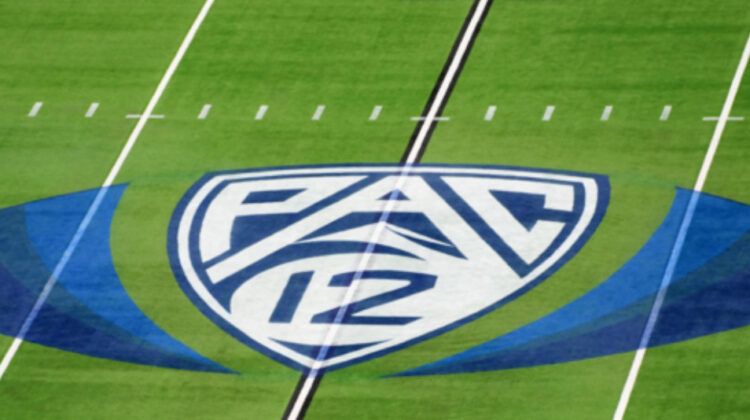Washington State and Oregon State have cleared a key hurdle in their plans for next season and, barring an unexpected snag, will compete as a two-team conference even if their legal fight takes a turn for the worse.
The schools recently received word from the NCAA that they have correctly interpreted the bylaws on conference membership requirements, opening a path for the Pac-12 to live on as the ‘Pac-2’ for the 2024-25 seasons, according to information gathered from multiple sources who requested anonymity.
NCAA bylaw 20.02.9 requires conferences to have at least eight members for classification in the Football Bowl Subdivision, but the bylaw seems to allow for a two-year grace period:
“A conference shall continue to be considered a Football Bowl Subdivision conference for two years following the date when it fails to satisfy the eight full Football Bowl Subdivision member requirement due to one or more of its member’s failure to comply with the bowl subdivision membership requirements.”
In no position to risk misinterpreting any aspect of the bylaw, WSU and OSU sought clarity from the NCAA and received a response “in the last several weeks,” a source said.
“We have confirmation from the NCAA that we are reading the bylaws appropriately,” the source said.
The Pac-12’s two remaining schools want to “keep the conference open,” another source said, because the assets and intellectual property value are believed to be worth more than $100 million after the 10 departing schools exit the conference next summer. (Those assets include NCAA Tournament revenue and contracts with the Rose Bowl and College Football Playoff.)
The Cougars and Beavers don’t plan to hoard the entirety of the Pac-12’s current-year revenue (about $420 million) if they win the ongoing court fight against the 10 outbound schools for control of the conference’s governing board.
“The notion that (WSU and OSU) would take all the money and divide it between the two — that would put everyone right back in gridlock,” a third source said. “And the hope is to get out of this gridlock.”
The two schools were given control of the Pac-12 board earlier this week by a Whitman County (Wash.) Superior Court judge. But Washington, the defendant representing all the outgoing schools, took the case to the Washington Supreme Court and received an emergency stay.
If the lower court ruling is overturned and the 10 outbound schools are given board positions, they could vote to share all the revenue. However, a source said that would not necessarily change the strategy for WSU and OSU.
“It’s independent of the NCAA situation,” the source said.
(Multiple sources said a settlement through mediation remains possible.)
Nor are WSU and OSU planning to use their stockpile of cash to poach the Mountain West schools, which have significant buyouts in their conference bylaws, and rebuild the Pac-12 in the next two years.
Instead, WSU president Kirk Schulz and OSU president Jayathi Murthy plan to use the Pac-12 assets to fund their athletic departments at levels as close to current standards as possible for as long as possible.
“They’re being reasonable about it,” a source said. “The assets are not about buying out (Mountain West) schools.”
Meanwhile, WSU and OSU are working to arrange 2024-25 competition schedules for their teams, with football as the priority.
They are close to finalizing a partnership with the Mountain West in which WSU and OSU would each play six or seven games against Mountain West opponents.
The remainder of their schedules would be filled with:
— Non-conference games currently under contract.
— At least one and perhaps two games against each other (in a home-and-home format).
— Their traditional in-state rivalry game: Oregon State against Oregon and Washington State against Washington.
A source said those century-old matchups have value to media partners and are close to being finalized.
Oregon is working to clear its schedule to play Oregon State on Sept. 14, 2024, according to JohnCanzano.com, while Washington currently has an opening on the same day.
If the arrangement with the Mountain West falls apart — it has not been finalized and depends largely on the financial terms — the Cougars and Beavers have a backup plan for their football schedules.
Central to the overall strategy is a competitive support structure for their other sports, including men’s and women’s basketball. The Mountain West would make the ideal partner, but the West Coast Conference and Big West could serve as options, as well.
“They are in as good a spot as they could be under the circumstances,” a source said.
|
ReplyReply allForward
|
Related posts:

Washington State quarterback Cameron Ward (1) (AP Photo/Andy Manis)
Wilner Hotline – Saturday Night Five: Along come the Cougars, OSU’s big win, USC’s takeaways, collecting wins (except in Boulder)
(AP Photo/Darryl Webb)
Pac-12 survival: What’s next for Oregon State, Washington State, Stanford and Cal after mass exodus to Big Ten, Big 12
Oregon State head coach Jonathan Smith, (AP Photo/Ashley Landis)
Mailbag: Playoff path for WSU and OSU, Fox vs. the Bay Area duo, elements of Pac-12 reconstruction, a “60 for 60” and more
Washington State quarterback Cameron Ward (1) (AP Photo/Andy Manis)
Mailbag: WSU and OSU link arms as their playoff path widens, Beavers and Cougars will have a better chance to reach the CFP despite carnage, more
